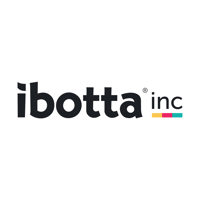The Semantic Data Modeler will develop semantic models, integrate NLP workflows, ensure data quality for knowledge graphs, and collaborate across teams.
At IMO Health, Semantic Data Modelers are key members of our ontology-driven graph engineering team, helping to build and maintain a virtualized, intelligent, and scalable medical terminology platform. Your work will empower over 740,000 clinicians by enhancing how healthcare data is structured, delivered, and understood.
We are seeking an experienced Semantic Data Modeler to join our team, focusing on the development and application of Knowledge Graphs integrated with Data Science and Natural Language Processing (NLP) workflows. In this critical role, you will contribute to the design and implementation of semantic models, bridging the gap between raw data sources and actionable clinical insights. You will utilize your skills in NLP and data analysis to enrich our knowledge graph, ensuring high data quality and accessibility for semantic enrichment and clinical interoperability initiatives. This position requires strong technical proficiency and exceptional collaboration skills, working closely with staff semantic engineers, clinicians, and content teams.
WHAT YOU’LL DO:
- Semantic Model Design: Contribute to the design, development, and iterative refinement of complex semantic data models, with a focus on ontologies, knowledge graphs, and property graphs.
- Requirement Translation: Assist senior team members in translating intricate, cross-functional business needs into formal, scalable knowledge graph structures, ensuring tight alignment with the enterprise data strategy.
- Governance and Standards: Document semantic assets, including detailed entity definitions, relationship types, axioms, constraints, and data lineage, ensuring adherence to established best practices and fostering consistency across the organization.
- Graph Data Analysis & Feature Engineering: Utilize data science methodologies and Python scripting to conduct exploratory data analysis (EDA) on graph structure, identify data patterns, perform feature engineering, and support advanced analytics based on the knowledge graph.
- Data-Driven NLP Integration: Apply Natural Language Processing (NLP) techniques and tooling to unstructured clinical text and data streams to identify, extract, and map new entities, attributes, and relationships directly into the semantic models, effectively structuring raw data for machine learning consumption.
- Robust Data Quality: Implement and maintain data quality frameworks, validation rules (e.g., using SHACL), and transformation logic within the semantic layer to ensure the accuracy, reliability, and consistency of the knowledge graph.
- Cross-Functional Partnership: Partner closely with Staff semantic engineers, clinicians, content teams, and business leaders to understand domain knowledge and requirements, and ensure semantic solutions effectively meet organizational objectives.
- Research & Evaluation: Assist in researching, evaluating, and utilizing new technologies, methodologies, and best practices in semantic modeling, knowledge graph technologies, and NLP to drive continuous process improvement.
- Knowledge Sharing: Proactively share technical expertise and knowledge with peers and cross-functional teams.
WHAT YOU’LL NEED:
- BA/BS in a STEM field (e.g., Computer Science, Data Science, Bioinformatics) with 3-5 years of hands-on work experience in data modeling or data engineering.
- Proven hands-on experience in semantic modeling concepts (ontologies, knowledge graphs, property graphs).
- Expertise in Python for data manipulation, analysis, and pipeline development, including libraries like Pandas/NumPy.
- Strong understanding of statistical and machine learning concepts (e.g., classification, clustering, regression) and their application to graph-based data.
- Demonstrated experience with NLP technologies and libraries (e.g., NLTK, spaCy, Gensim, Hugging Face) for text extraction, named entity recognition, or relationship extraction.
- Strong working knowledge of graph database platforms (e.g., Amazon Neptune, Neo4j, etc.) and graph query languages (e.g., SPARQL or Gremlin).
- Familiarity with semantic web standards like OWL, RDFS, and SHACL.
- Experience with relational databases (SQL) and general data warehousing concepts.
- Ability to communicate complex technical concepts effectively to both technical and non-technical stakeholders.
- Experience in an Agile/Scrum environment, iteratively developing and deploying data solutions.
NICE TO HAVE:
- Practical experience with AWS data services (e.g., Glue, Sagemaker) and ETL/ELT methodologies.
- Understanding healthcare ontologies and standards like SNOMED-CT, LOINC, RxNorm, and ICD-10.
Top Skills
Amazon Neptune
Gensim
Hugging Face
Neo4J
Nltk
Numpy
Owl
Pandas
Python
Rdfs
Shacl
Spacy
SQL
Similar Jobs
Artificial Intelligence • Machine Learning • Software • Defense
Lead the growth of the Perception Management platform by designing, building, and integrating defense tech applications, mentoring engineers, and setting the technical direction.
Top Skills:
ElasticsearchNode.jsPostgresReactRedisS3TailwindTypescript
Artificial Intelligence • Big Data • Cloud • Information Technology • Machine Learning • Software
The Sales Engineer supports sales by providing presales support, demonstrating Nexthink solutions, and driving the business value through collaboration with multiple stakeholders, focusing on enterprise accounts.
Top Skills:
Cloud-Based SolutionsDigital Experience MonitoringIt OperationsIt SecurityIt Service ManagementItil FrameworkO365SaaSWin10
eCommerce • Mobile • Payments
Drive strategic client partnerships and deliver business results. Lead sales initiatives, manage executive relationships, and mentor teams while meeting revenue targets.
Top Skills:
Google SuiteLookerSalesforce
What you need to know about the Charlotte Tech Scene
Ranked among the hottest tech cities in 2024 by CompTIA, Charlotte is quickly cementing its place as a major U.S. tech hub. Home to more than 90,000 tech workers, the city’s ecosystem is primed for continued growth, fueled by billions in annual funding from heavyweights like Microsoft and RevTech Labs, which has created thousands of fintech jobs and made the city a go-to for tech pros looking for their next big opportunity.
Key Facts About Charlotte Tech
- Number of Tech Workers: 90,859; 6.5% of overall workforce (2024 CompTIA survey)
- Major Tech Employers: Lowe’s, Bank of America, TIAA, Microsoft, Honeywell
- Key Industries: Fintech, artificial intelligence, cybersecurity, cloud computing, e-commerce
- Funding Landscape: $3.1 billion in venture capital funding in 2024 (CED)
- Notable Investors: Microsoft, Google, Falfurrias Management Partners, RevTech Labs Foundation
- Research Centers and Universities: University of North Carolina at Charlotte, Northeastern University, North Carolina Research Campus



